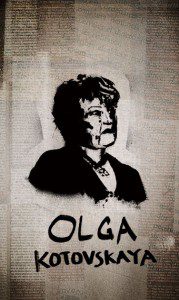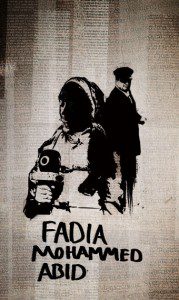Index relies entirely on the support of donors and readers to do its work.
Help us keep amplifying censored voices today.
Following the extension of the imprisonment of Alaa Abdel-Fattah for a further fifteen days, the prominent Egyptian blogger has sent a message to his supporters from his prison cell, asking them to celebrate his 30th birthday in Tahrir Square on 18 November.
Alaa was summoned by a military prosecutor last month after an article he wrote exploring the death of activist Meena Daniel in October appeared in an Egyptian newspaper, and was returned to prison.
In this message to his supporters, Alaa stresses his fears for the wellbeing of his mother, who is on hunger strike for his release, his concerns for his wife, Manal, and explains that he will miss his “special” birthday and Eid celebrations. The blogger, who blamed the military for Daniel’s death, fears that whilst imprisoned he will miss the birth of his first son:
“I’ve spent Eid away from my family for the past three years due to living abroad. It used to pass like an ordinary day, we go to work late in the morning and if it wasn’t for that one phone call , we wouldn’t even know its Eid.
I was keen on this Eid, the first Eid to spend with the family after we moved back, but the military decided that it is not our right to be happy. I spent Eid in a cell and my family spent it waiting in a queue that lasted the entire Eid day, only for a sample of visitors to be able to go inside accompanied by security officers who outnumber them.
Between making sure my mother , who began a hunger strike to call for my release is alright and the tension of being denied the exchange of letters with Manal, the minutes of the visit finished fast and the first day of Eid was over.
The employees, the guards and the officers had to leave to celebrate Eid and this means that the prison is operating at half capacity, as in they closed the cells for four days in a row: no time out of the cell, no visits, no newspapers, no food from outside, do you want criminals to celebrate Eid for god’s sake?
If it wasn’t for your tweets that arrived in the form of Eid postcards, I wasn’t going to feel that there was Eid in the outside world , thank you for troubling yourself and thanks to the people behind this idea.
Eid is over, but my birthday is coming up, for the last four years, I have celebrated my birthday away from my family, but this time was supposed to be special. My 30th birthday, the beginning of my realisation that I have entered adulthood with no going back. It is also a few days before Khalid is born. On the 18th of November, we will return to Tahrir, I wanted to celebrate with my fellow revolutionaries at Tahrir square and then, with my family at night. But of course, Friday is not a visiting day and they wouldn’t open our doors.
I ask you to celebrate on my behalf at the square, when I receive news of your solidarity with me, they are the only moments that make me happy. From the protests in front of the Appeals Prison ( sadly, I have not felt them since I’m locked in the other side, but I’ve heard about them from other prisoners) to the protests against military trials from Luxor to Alexandria and even in Oakland and San Francisco , two cities I have visited for a short while but have entered my heart after attending their meetings and lectures.
The Eid has passed, my birthday will pass and I will be used to spending them away from my family, but the birth of Khalid, my first son, how can I miss it?
How can I tolerate not being next to Manal all this time? How can I wait for the news to find out whether they are alright or not? How can I tolerate not seeing his face?
How can I not see his mother’s face when she sees his face? How can I look at his face after I’m released even though I promised him to be born free?
We called him Khalid because we are endowed to Khalid Said and instead of imprisoning his murderers, we are imprisoned?”
Special thanks to Reem Abbas for the translation.
 MURDERED 16 NOVEMBER 2009
MURDERED 16 NOVEMBER 2009
Olga Kotovskaya, Co-Founder, Kaskad — Kaliningrad, Russia
Join us in demanding justice for Olga Kotovskaya. Authorities called it a suicide but her friends and colleagues of believe she was murdered in connection to her work: on 16 November 2009, Kotovskaya fell to her death from a 14th-floor window of a building that she reportedly had no reason to be in. For years, Kotovskaya had been embroiled in a lawsuit with Kaliningrad’s former vice governor, Vladimir Pirogov, over control of Kaskad. A week before her death, a local court upheld her claims that Pirogov had taken charge of the station using documentation containing forged signatures.
International Day to End Impunity is on 23 November. Until that date, we will reveal a story each day of a journalist, writer or free expression advocate who was killed in the line of duty.
The need for a free press is now “as great, if not greater, than it has ever been”, a lawyer for News International said today as the Leveson Inquiry began its second day of hearings.
For Rhodri Davies QC, a key issue is “not why does the press know so much, but why does it know so little”. He stressed that NI supported a model of independent self-regulation, that the PCC could be improved, and that the press is “not above the law.”
Davies also apologised to phone hacking victims, stressing that the practice was “shameful” and “should not have happened”. He added that NI accepts “there was no public interest justification” in hacking.
Regarding the hiring of a private investigator to carry out surveillance on hacking victims’ lawyers and members of the select committee, Davies said “it wasn’t journalism at all and it was unacceptable.”
Davies contested the figure revealed yesterday by Robert Jay QC, counsel to the Inquiry, that 28 NI reporters had been involved in phone hacking. He said that believes the police are the only people who have seen the entire set of Glenn Mulcaire’s notebooks, which contained five corner names — Clive Goodman and other News of the World staff referred to as A, B, C and D — and asked Jay’s figure of 28 be “rechecked”.
He conceded, however, that the 2,266 requests for voicemails cited in the 11,000 pages of notes were “2,226 too many”. Referring to the five reporters, Davies said “five names is five names too many”.
He added that he was not going to give any assurances that phone hacking did not occur “by or for the News of the World after 2007”, but stressed that lessons had been learned from the jailing of Goodman and Mulcaire. He cited the setting up of an internal committee at NI as one of the steps the company was taking to ensure phone hacking did not happen again.
Also speaking this morning was Jonathan Caplan QC on behalf of Associated Newspapers. He too condemned the practice of phone hacking, adding that no journalist at Associated Newspapers has engaged in phone hacking, bribed or bribes police officers.
Caplan also stressed that the PCC could be made more effective but “did not need to be replaced.” The virtue of the current system, he said, is that complaints are generally heard and resolved quickly, free of charge and without the use of lawyers.
He made the case for all newspapers being part of a self-regulatory system, adding that it was “unacceptable” that a newspaper owner should be permitted to opt out of one.
To this, Leveson said he could not see how this would be achieved without a law forcing all newspapers to sign up.
The hearing will continue this afternoon with an opening statement by Northern and Shell, which publishes the Express and Daily Star.
Follow Index on Censorship’s coverage of the Leveson Inquiry on Twitter – @IndexLeveson.
 MURDERED 15 NOVEMBER 2006
MURDERED 15 NOVEMBER 2006
Fadia Mohammed Abid, Journalist, “Al-Masar”, and her driver — Mosul, Iraq
Join us in demanding justice for Fadia Mohammed Abid. Gunmen in a car shot and killed the journalist and her driver in the Tahrir neighbourhood of east Mosul as they were on the way to the office on 15 November 2006. According to the International Federation of Journalists, there were four deadly attacks on Iraqi journalists and media workers that week alone.
In 2011, Iraq – with an impunity rating three times worse than that of any other nation – is ranked first in the Committee to Protect Journalists’ Impunity Index for the fourth straight year. Although crossfire and other conflict-related deaths have dropped in Iraq in recent years, the targeted killings of journalists spiked in 2010. Plus, says CPJ, not a single one of the 92 journalists’ murders recorded in Iraq this past decade has been solved.
International Day to End Impunity is on 23 November. Until that date, we will reveal a story each day of a journalist, writer or free expression advocate who was killed in the line of duty.